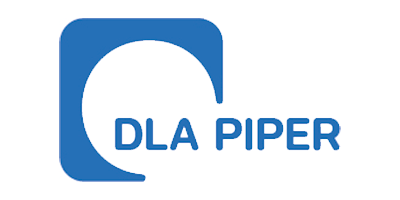Partnerblog
Mandatory time registration for most cleaning activities as of 1 September 2024
 There is under Belgian law no broad requirement for every employer to have a time registration system in place, notwithstanding the case law of the European Court of Justice requiring such a system.
There is under Belgian law no broad requirement for every employer to have a time registration system in place, notwithstanding the case law of the European Court of Justice requiring such a system.
There is under Belgian law no broad requirement for every employer to have a time registration system in place, notwithstanding the case law of the European Court of Justice requiring such a system.
There are nevertheless an increasing number of specific provisions making the use of a time registration system mandatory. This is for instance the case when using a floating work schedule.
Also within the construction sector, a time registration system called “check-in-at-work” has been in place for several years. The aim of the system is broader, as it is in the first place used for combatting the use of undeclared labour at the construction site covered by the system. The requirement everyone accessing or leaving the construction site involved has to be register, makes it nevertheless also possible to monitor the compliance with the working time regulations.
The government initially conceived the “check-in-at-work”-system for the construction sector, but afterwards broadened it to slaughterhouses. The Programme Act of 26 December 2022 announced the introduction of the same system to cleaning activities. While this Programme Act stipulated it would enter into force on 1 January 2024, this deadline lapsed due to the absence of a Royal Decree determining the implementation modalities.
The Official Journal of 3 June 2024 included nevertheless a Royal Decree with those necessary implementation modalities. The time registration for cleaning activities will therefore become mandatory as of 1 September 2024.
The new legislation notably applies to contractors or subcontractors performing cleaning work and pertaining to the joint committee for cleaning activities (joint committee n° 121). There is thus no mandatory time registration for “internal” cleaning staff, as the joint committee for cleaning activities does only apply to cleaning activities for third parties.
The system is on the other hand applicable to both workers and self-employed persons forming cleaning or maintenance work.
The time registration used should meet the requirements imposed by the National Office for Social Security. It should process the identification data of the worker (or self-employed person involved) of the employer (or the principal), the moment each physical person arrives at the place of work and the moment this person starts and ends working.
In principle, the registration system only implies obligations for the employer, hence the external cleaning company. The sanctions in case of an infringement can thus in principle only be imposed on this external cleaning company and its managers.
A company having recourse to an external cleaning firm failing to comply with the time registration system could nevertheless indirectly be held liable on the basis of the general criminal law rules concerning complicity, for instance if it is aware of the cleaning firm has recourse to undeclared workers but nevertheless continues to have recourse to this cleaning firm because it is cheaper than cleaning firms complying with their obligations.
Written by: Eddy Lievens, Laurent De Surgeloose, Pierre Dion
More Partner Blogs
AI op het kruispunt van technologische ontwikkeling en ethische dilemma’s
Al eeuwenlang transformeert technologische vooruitgang elke dag opnieuw ons leven, zowel privé als...
One year of the FSR: the first (in-depth) investigations and the impact on international trade dynamics
On 12 July 2024, the Foreign Subsidies Regulation (FSR) celebrated its first anniversary.
Trends in the legal recruitment market
Sara Beernaert, Sara Berquin and Karolien Eeckhoudt, three of our leading legal recruitment...
Ecodesign: textiles, footwear, detergents and chemicals amongst products to be prioritised under new rules
Published on 28 June 2024 and in force since 18 July, the Ecodesign for Sustainable Products...
Risico's Juridisch Beheersen: De Strategische Gids voor Juridische Afdelingen
Als bedrijfsjurist is het essentieel om de ernstige gevolgen van het niet naleven van wetten,...

